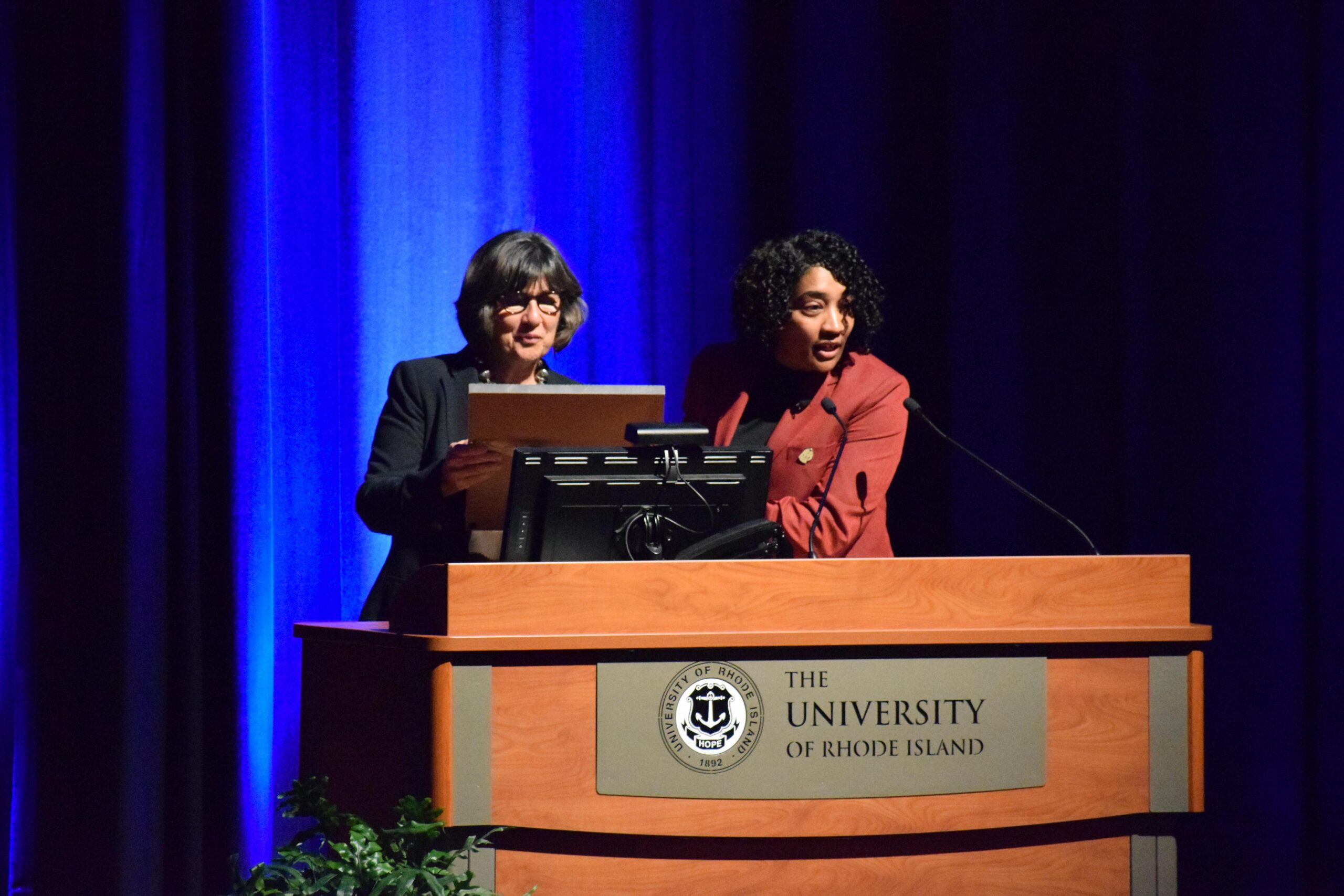On Friday, the University of Rhode Island’s Harrington School of Communication and Media celebrated the 16th annual Christiane Amanpour Lecture. This lecture brings notable journalists from around the world to share their experiences in the field and the importance of journalism with the URI community.
The Christiane Amanpour lecture series is named after alumna Christiane Amanpour. Since she graduated from URI, Amanpour has become one of the world’s leading global journalists. For 40 years, she has been reporting for CNN and has won every major TV and journalism award including the Courage in Journalism Award and the George Foster Peabody Award.
This year, Amanpour made an appearance at the lecture, which focused on award-winning journalist Mystlav Chernov’s film “20 Days in Mariupol”. She described the film, which won a Pulitzer Prize the previous night, as a “hugely compassionate eyewitness companion to the people there.”
The film, which follows the first 20 days of the Russian invasion of Ukraine, follows Chernov and his team as they document and interview the people of Mariupol.
“You feel like you know the residents of Mariupol having watched this,” Amanpour said.
25 to 30 hours before speaking at the Amanpour lecture, Chernov said he had been crossing a river in Ukraine so that he could leave for New York to accept his Pulitzer Prize and then come here to speak to the URI community. Throughout his presentation, Chernov shared his experiences as a photographer, documentarian and war journalist. He told the audience about how for the majority of his career as a photographer, he couldn’t find anyone to purchase his photos. Now, Chernov works for the Associated Press. Before filming the Russian Invasion of Ukraine, Chernov also documented the war in Iraq and the Taliban’s takeover of Afghanistan.
During his presentation, Chernov shared with the audience the trailer for the film “20 Days in Mariupol”. Before starting the trailer, Chernov explained that his crew went to Mariupol with the question “Where do we meet the Third World War?” Chernov explained to audiences that he didn’t want him and his crew to be the center of attention in this film. He wanted to convey a tone of conversation throughout the documentary. He also wanted to tell the story of the people who live in Mariupol and the suffering that he experienced alongside them.
During his presentation, Chernov touched on the many times during his career when he was disillusioned by journalism and misinformation. Specifically, he noted the start of the Ukraine War, where he heard different stories about the war from countries all over.
“The only way to understand what is happening in the world is to be there,” Chernov said.
And that’s what his documentary does. “20 Days in Mariupol” brings audiences into the Russian invasion of Ukraine and allows them to see exactly what happened in the first 20 days of the war.
On journalism as a profession, Chernov told audiences that he believes journalism to be more vital than food or water. In an age where it is difficult to receive truthful information, Chernov believes that journalists are vital to keeping citizens informed on the world around them.
“What we do is inform and then it is up to society to solve these issues,” Chernov explained.
While he has strong feelings about the war in Ukraine, he explained to audiences that the best way he can do his job is to approach the war from a judicial standpoint and force audiences to act on what he shows them.
At the end of the lecture, Chernov explained to audiences that “the indifference feels like a crime” and that’s why he risks his life to share what he experiences with audiences. Chernov equates sitting by and letting these war crimes occur without any acknowledgment of being guilty of these crimes. Early in the lecture, Chernov said that many journalists he knew became journalists because war came to their country. Chernov is one of the few journalists who are doing “the good work” and showing people the horrors of the world in hopes that the viewers will act.
According to Chernov, every documentarian hopes that they will produce the picture or video that ends the war. So far, that has yet to be seen. Despite this, Chernov and journalists like him still try to fight the “indifference” they see in the world.

